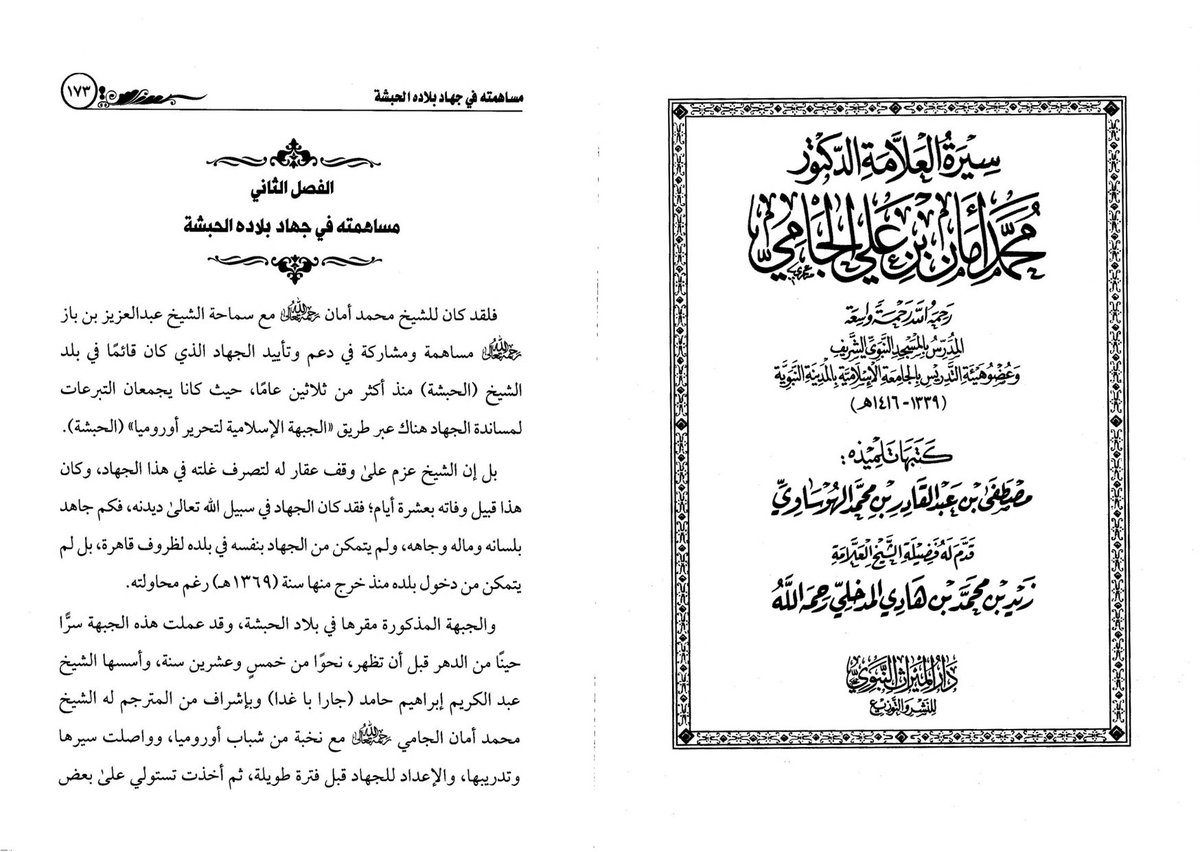
How to get URL link on X (Twitter) App

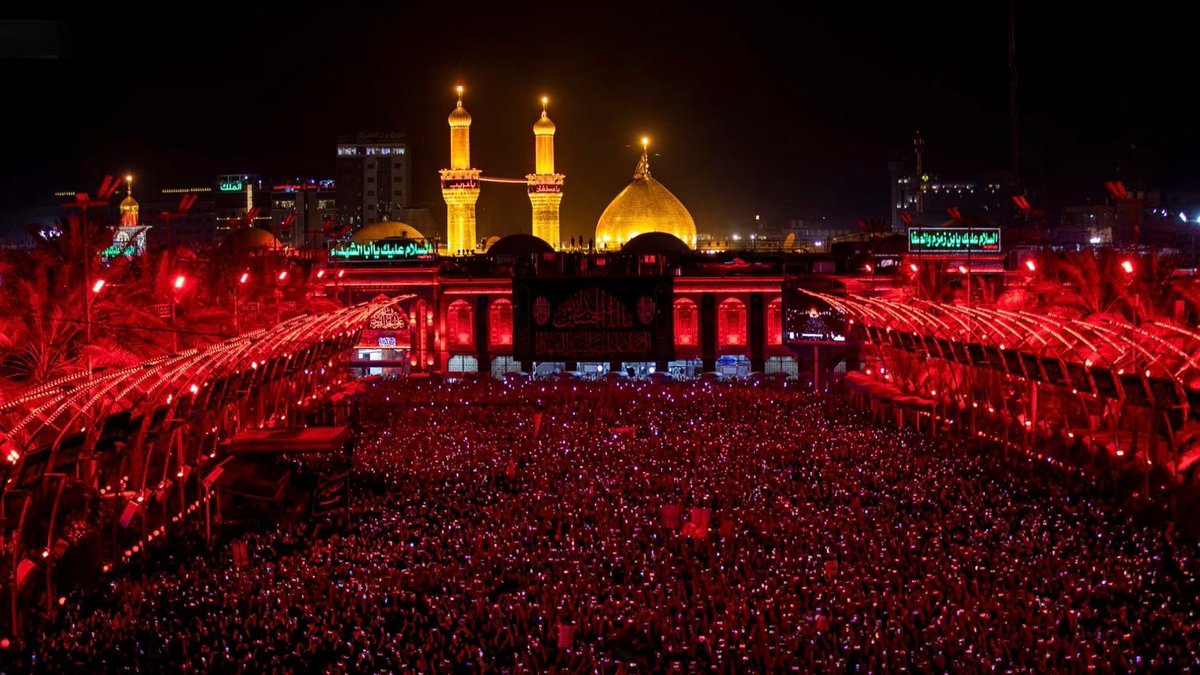
https://x.com/ibmsulaymani/status/2010861867552350519
 1) The Ottoman violation of the treaty between them and the First Saudi State
1) The Ottoman violation of the treaty between them and the First Saudi State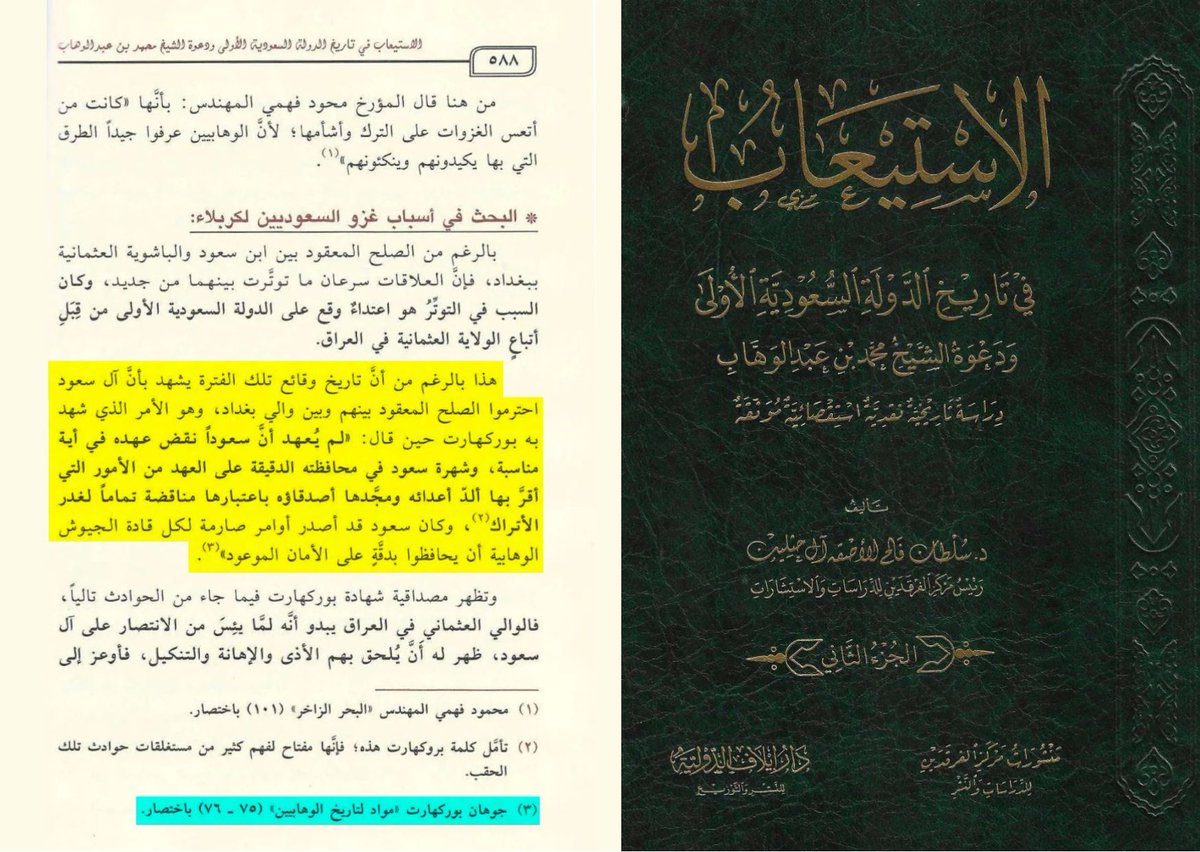

 1) Abū ʿUbaydah references Fatḥ al-Majīd, the explanation of Kitāb al-Tawḥīd by Sh ʿAbd al-Raḥman Ibn Ḥasan, the grandson of Sh Muḥammad Ibn ʿAbd al-Wahhāb
1) Abū ʿUbaydah references Fatḥ al-Majīd, the explanation of Kitāb al-Tawḥīd by Sh ʿAbd al-Raḥman Ibn Ḥasan, the grandson of Sh Muḥammad Ibn ʿAbd al-Wahhāb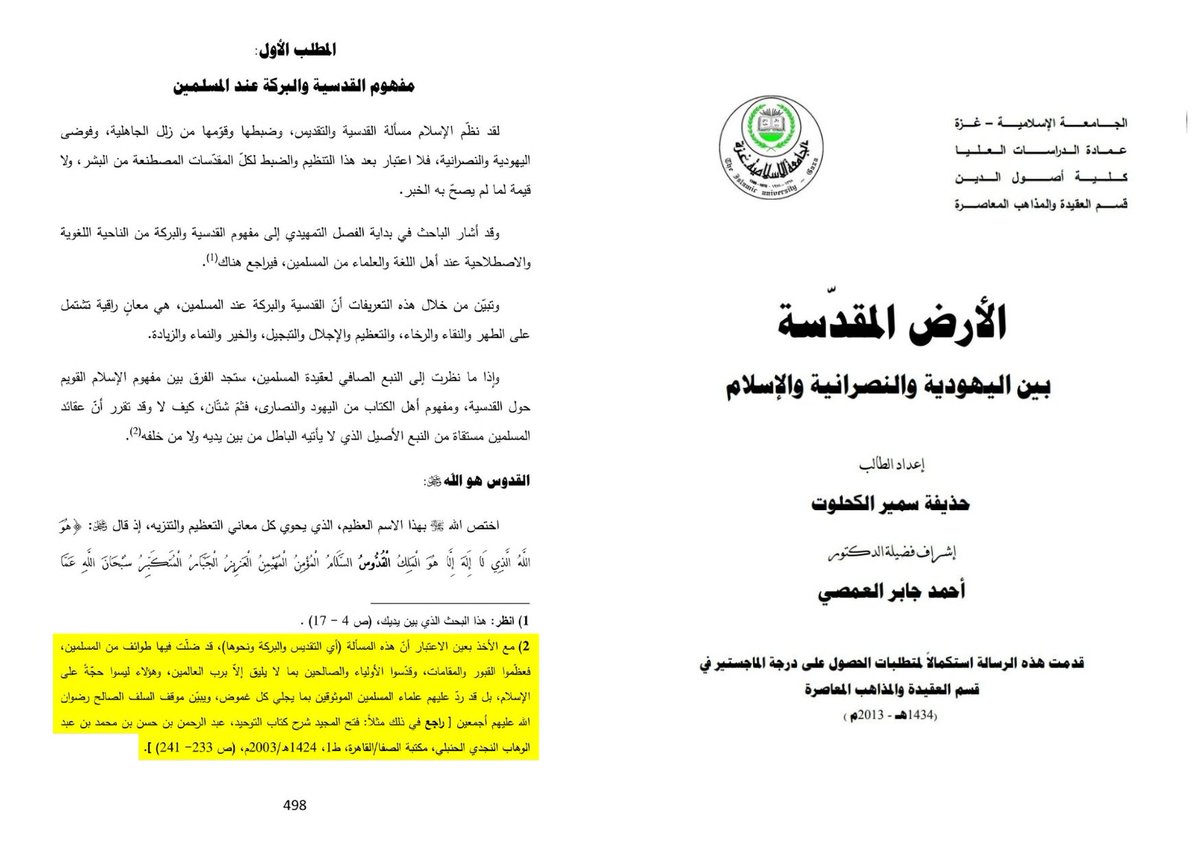

 𝟭) 𝗧𝗮𝗸𝗶𝗻𝗴 𝘁𝗵𝗲 𝗮𝗽𝗽𝗮𝗿𝗲𝗻𝘁 𝗺𝗲𝗮𝗻𝗶𝗻𝗴
𝟭) 𝗧𝗮𝗸𝗶𝗻𝗴 𝘁𝗵𝗲 𝗮𝗽𝗽𝗮𝗿𝗲𝗻𝘁 𝗺𝗲𝗮𝗻𝗶𝗻𝗴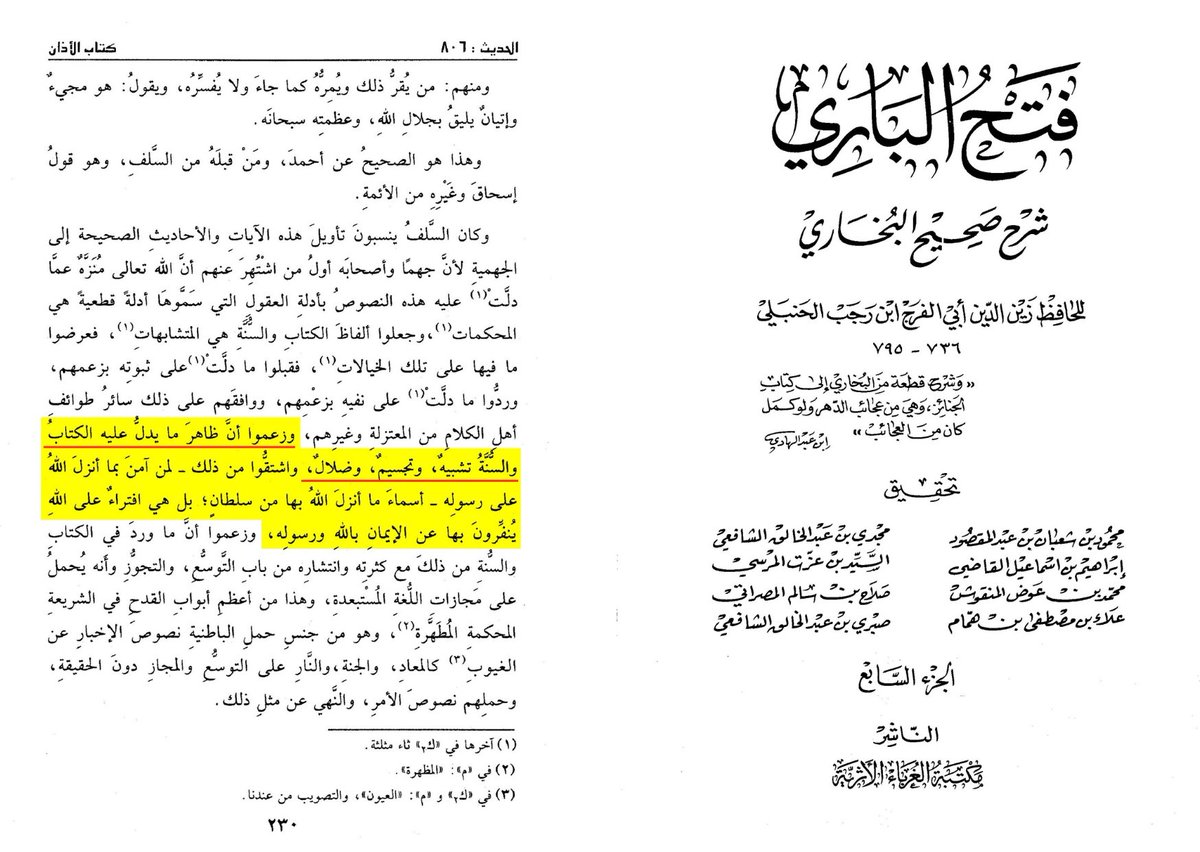


https://twitter.com/ibmsulaymani/status/1890762461823058275
https://twitter.com/ibmsulaymani/status/1843649185800712354
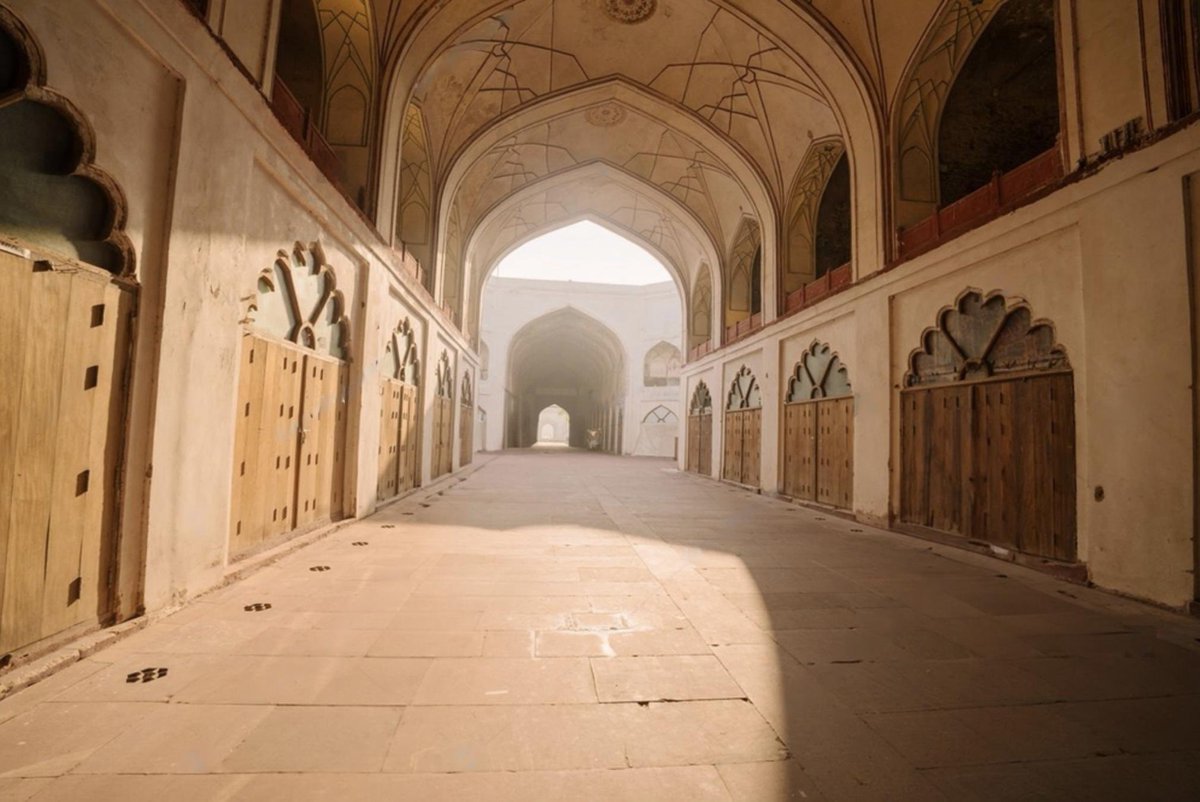
 1) Ṣiddīq Ḥasan Khān al-Qannūjī al-Būfālī (Died 1248-1307H)
1) Ṣiddīq Ḥasan Khān al-Qannūjī al-Būfālī (Died 1248-1307H)

 𝟭) 𝗕𝗲𝗹𝗶𝗲𝗳 𝗶𝗻 𝘁𝗵𝗲 𝗧𝗵𝗿𝗼𝗻𝗲
𝟭) 𝗕𝗲𝗹𝗶𝗲𝗳 𝗶𝗻 𝘁𝗵𝗲 𝗧𝗵𝗿𝗼𝗻𝗲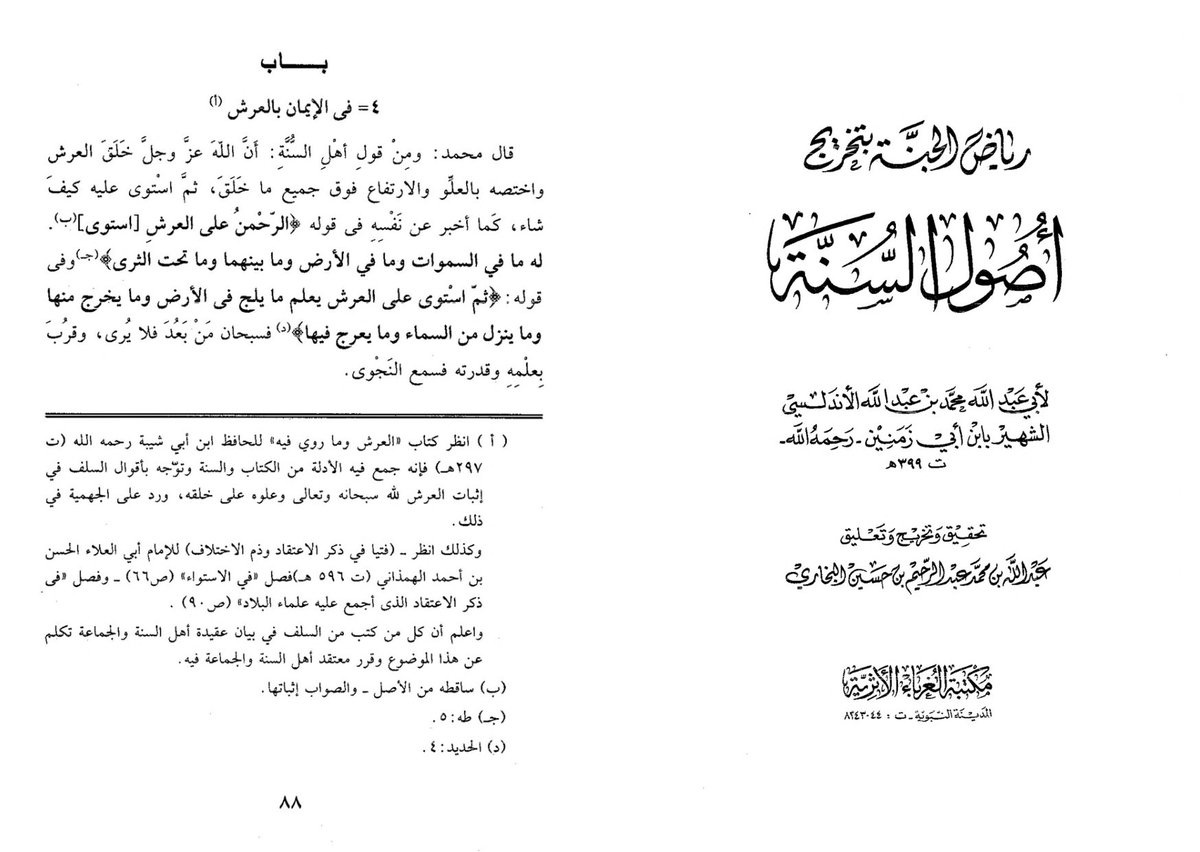
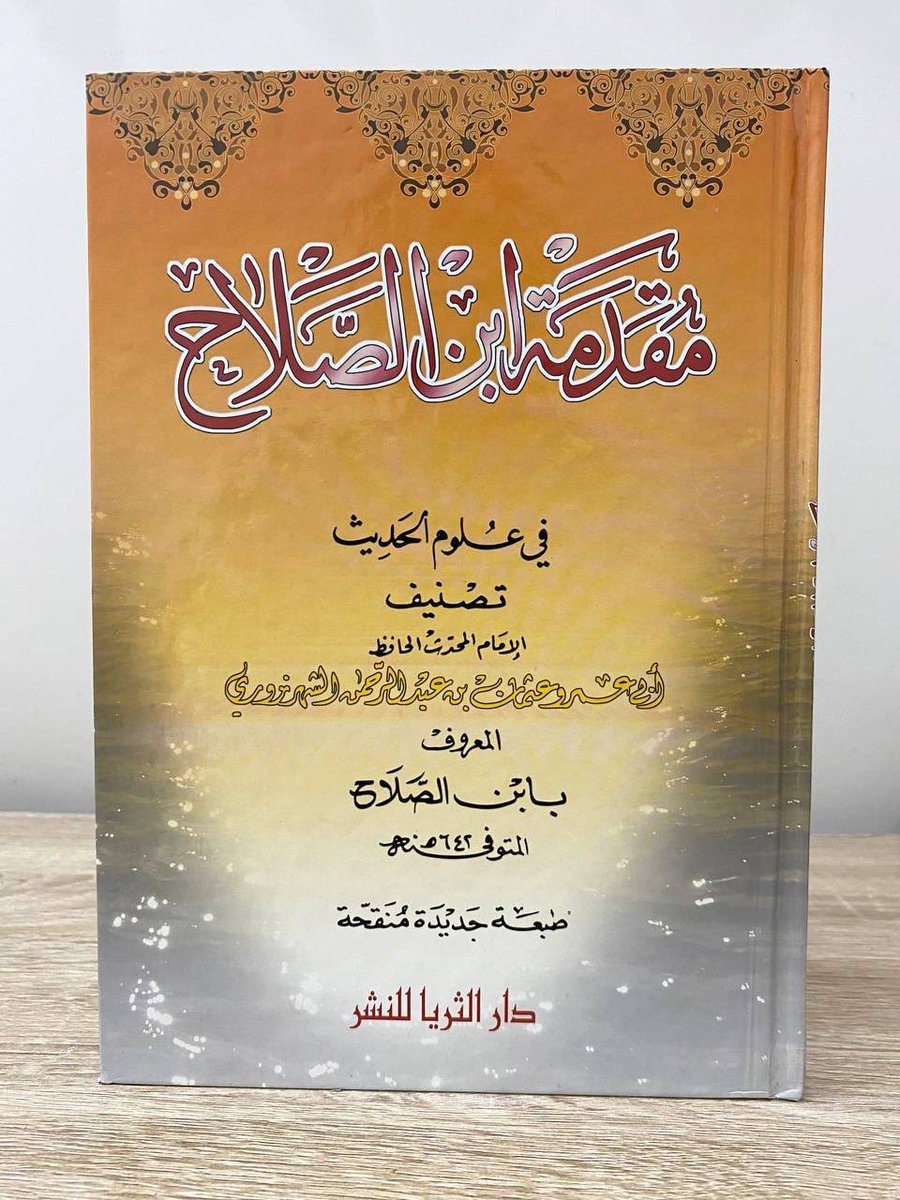

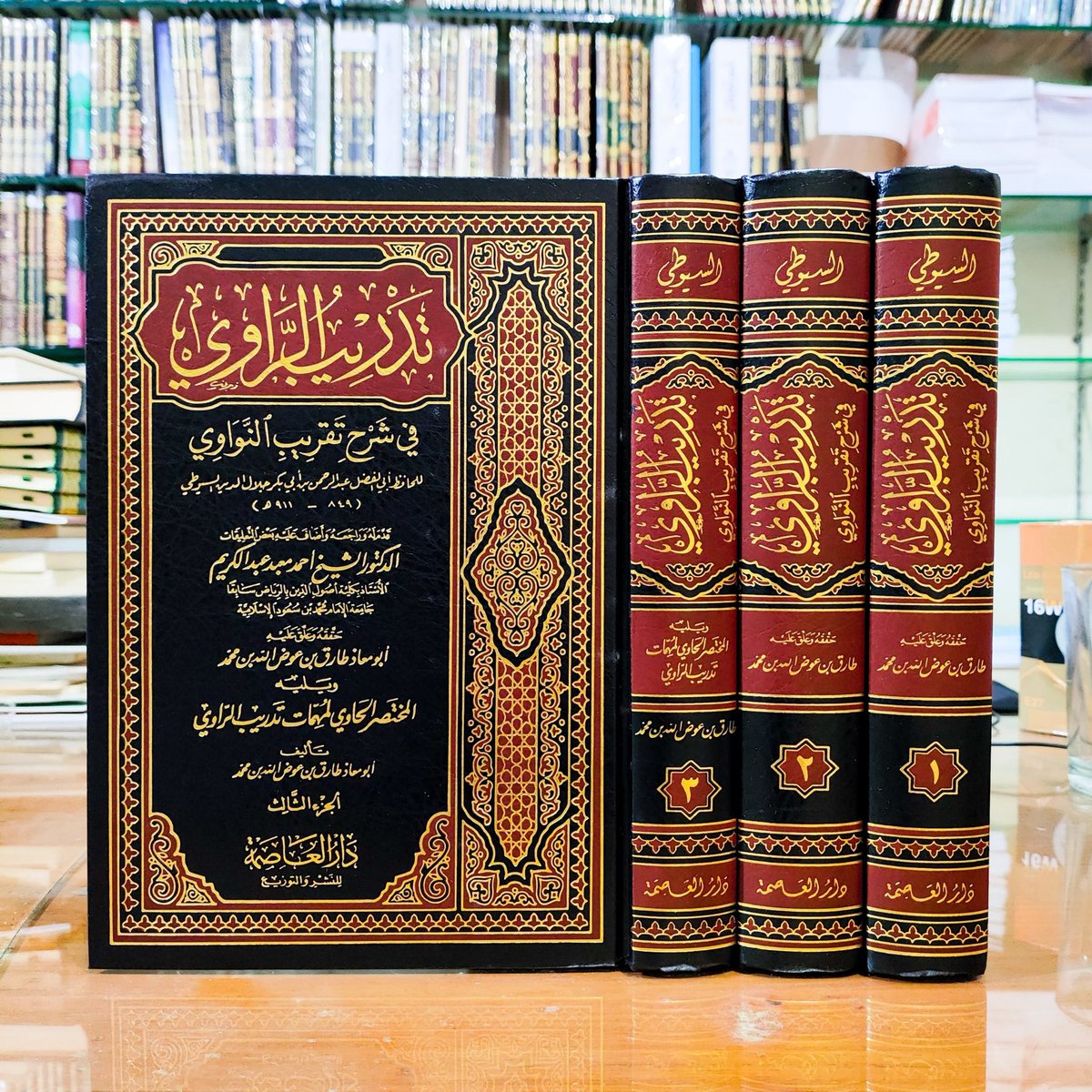
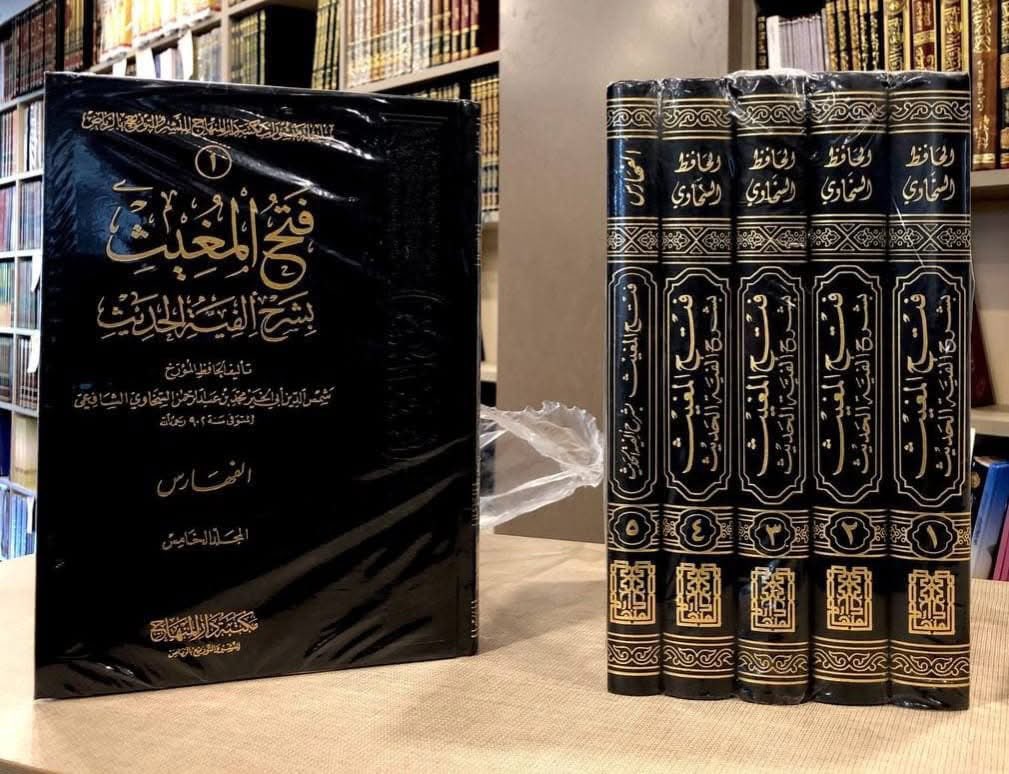
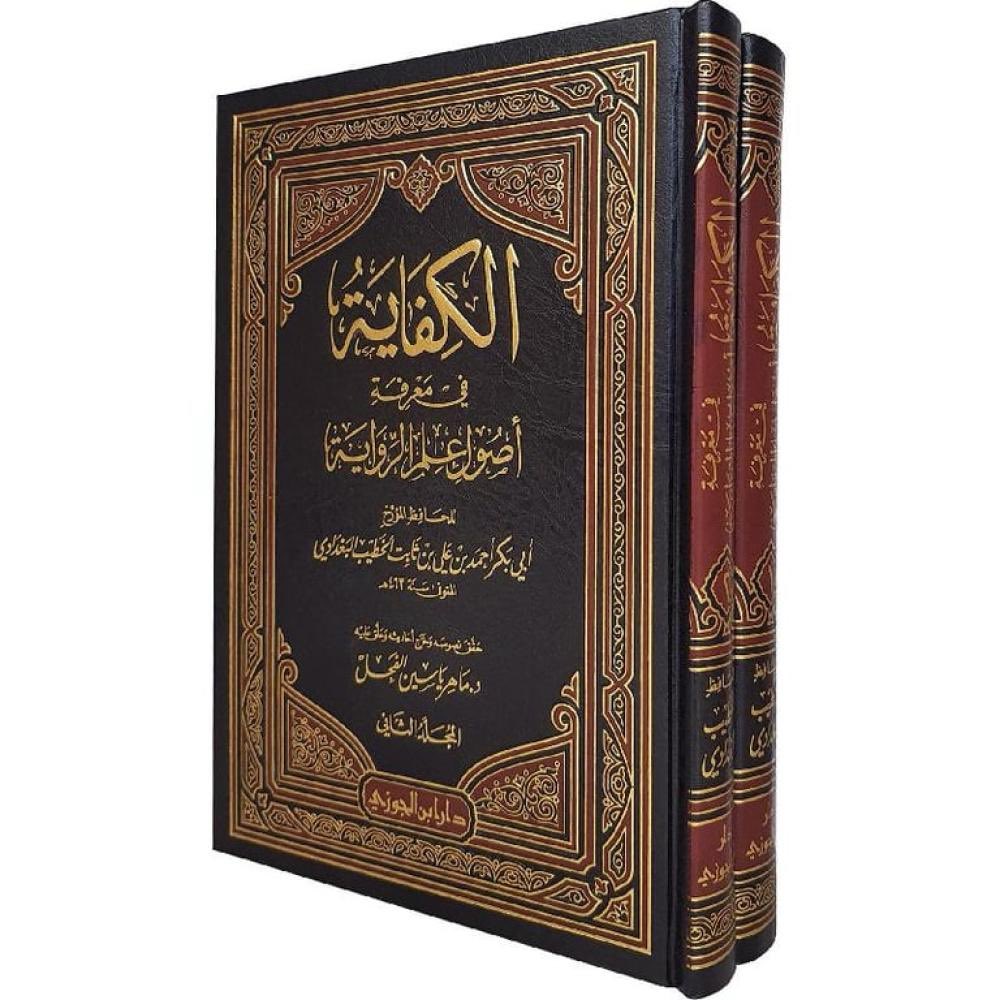 Some books detailing the biographies and reliabilities of narrators:
Some books detailing the biographies and reliabilities of narrators: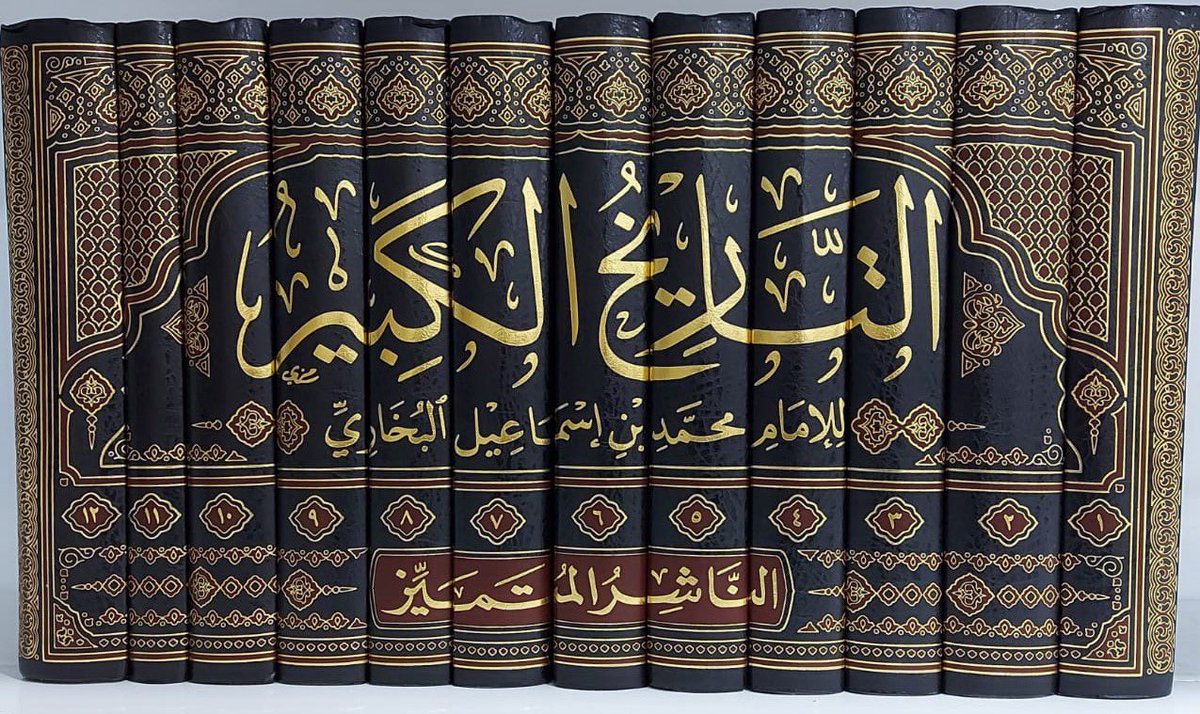
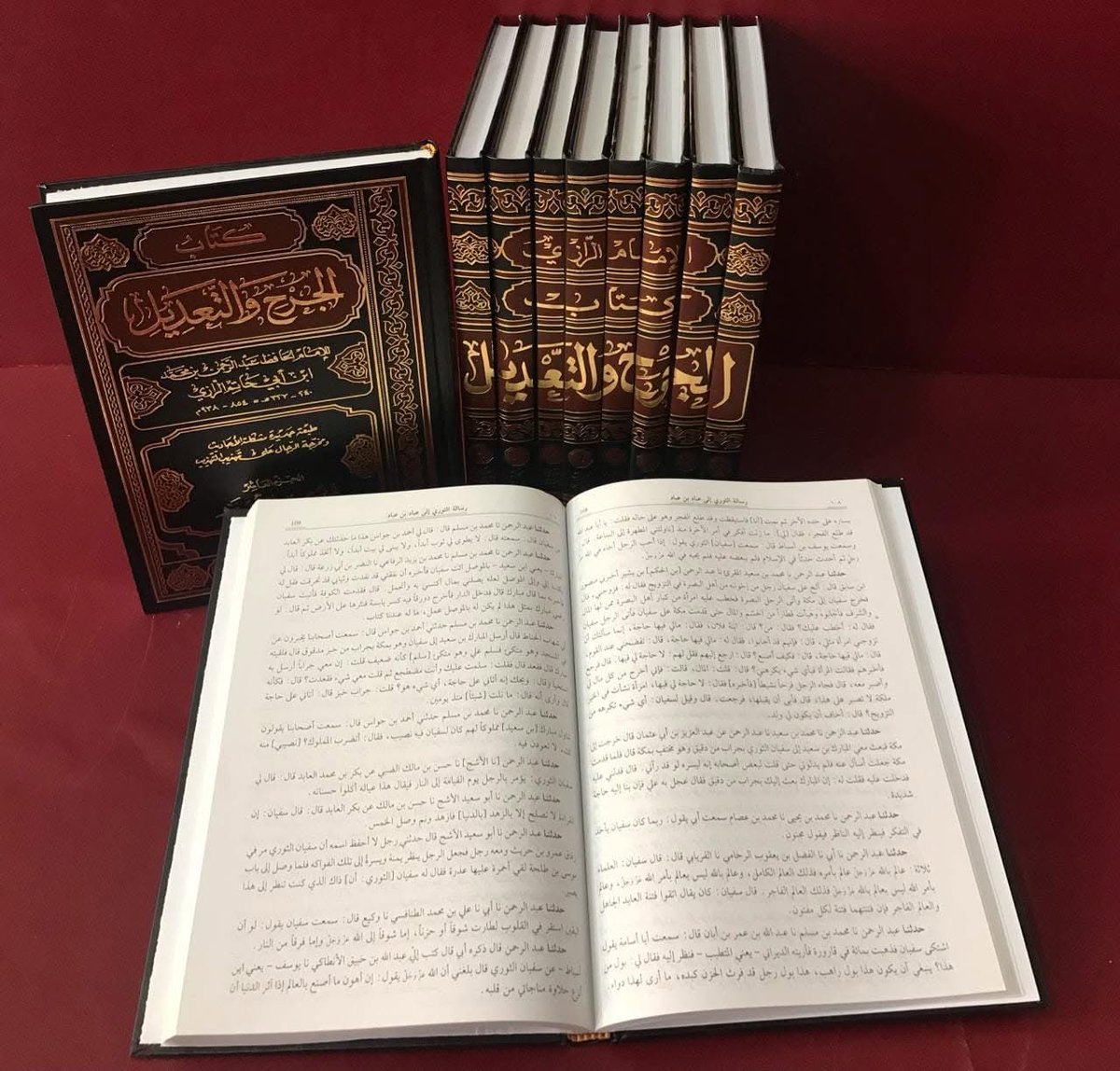
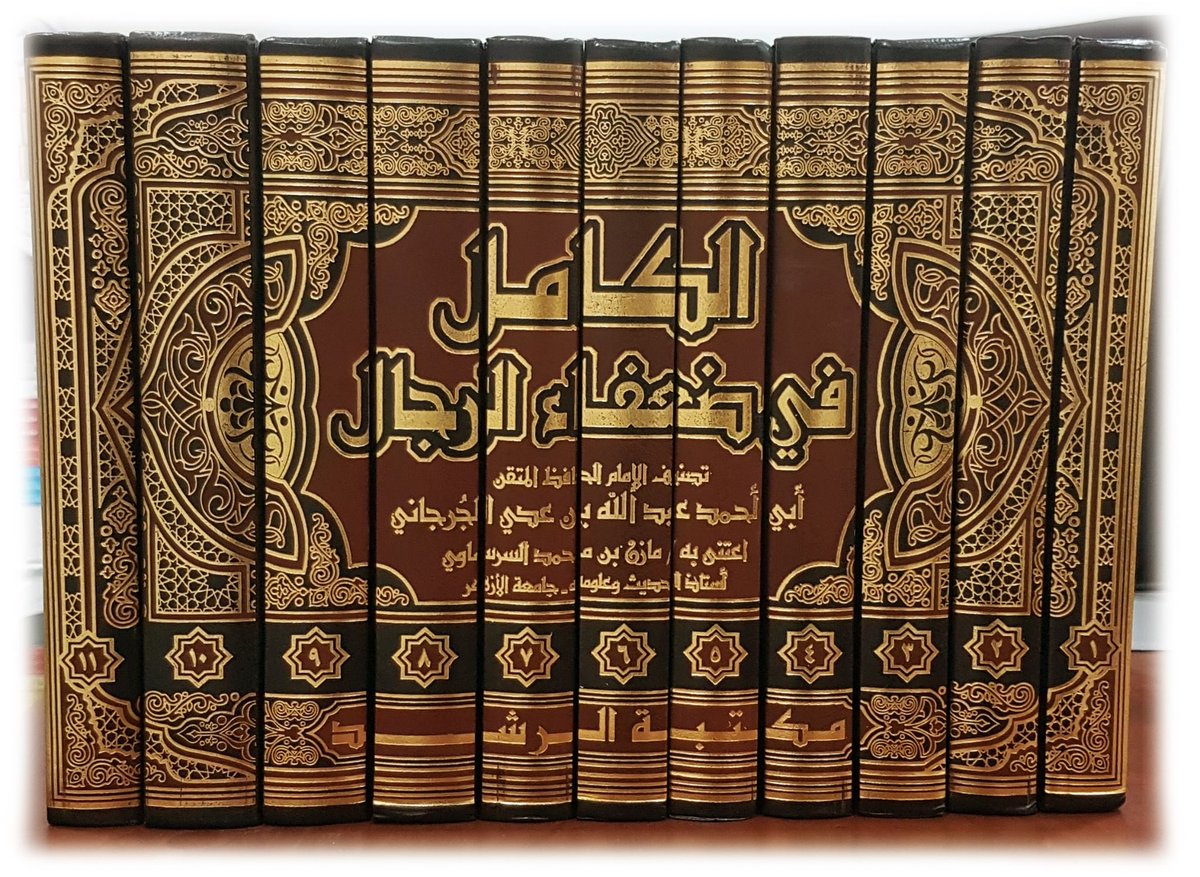
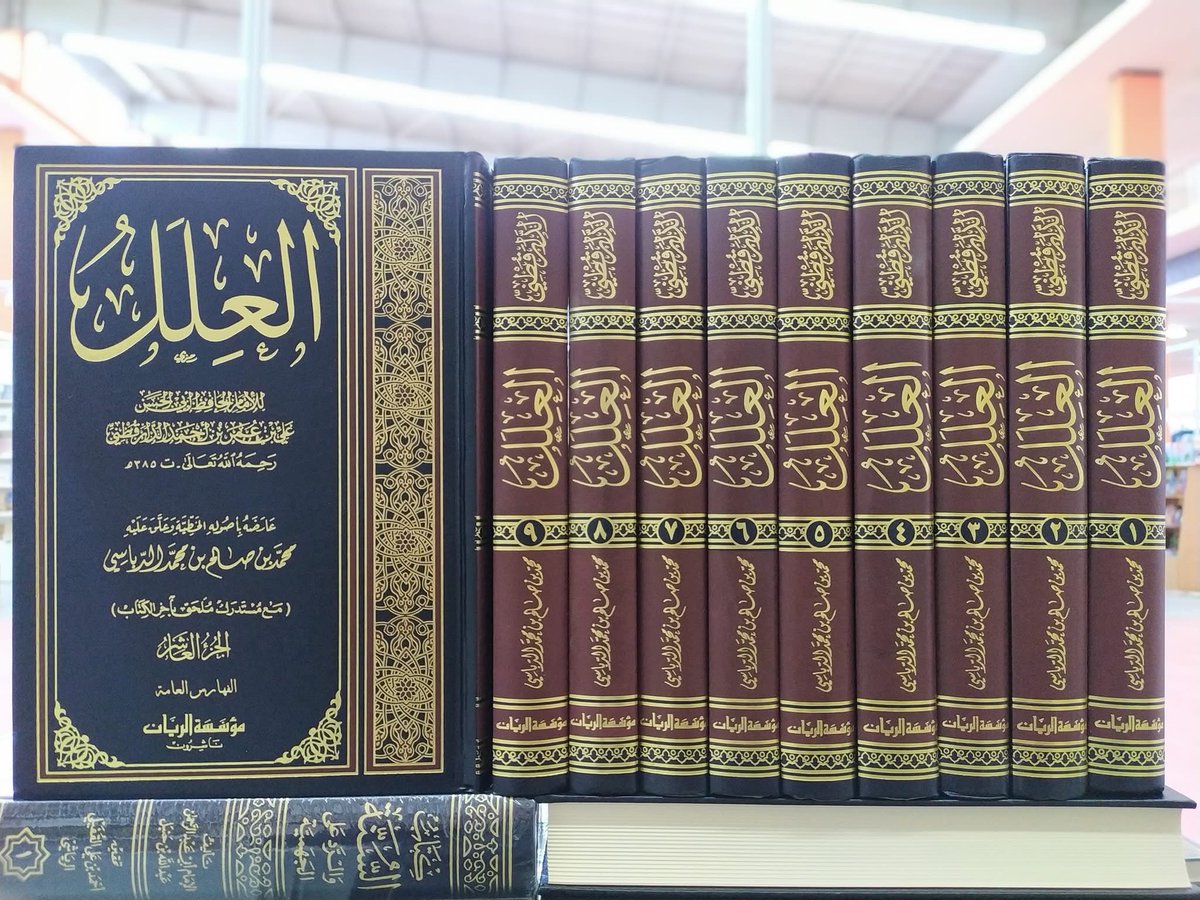


 Faris al-Hammadi Lies Against Shaykh Ibn Baz Regarding Israeli Normalisation
Faris al-Hammadi Lies Against Shaykh Ibn Baz Regarding Israeli Normalisation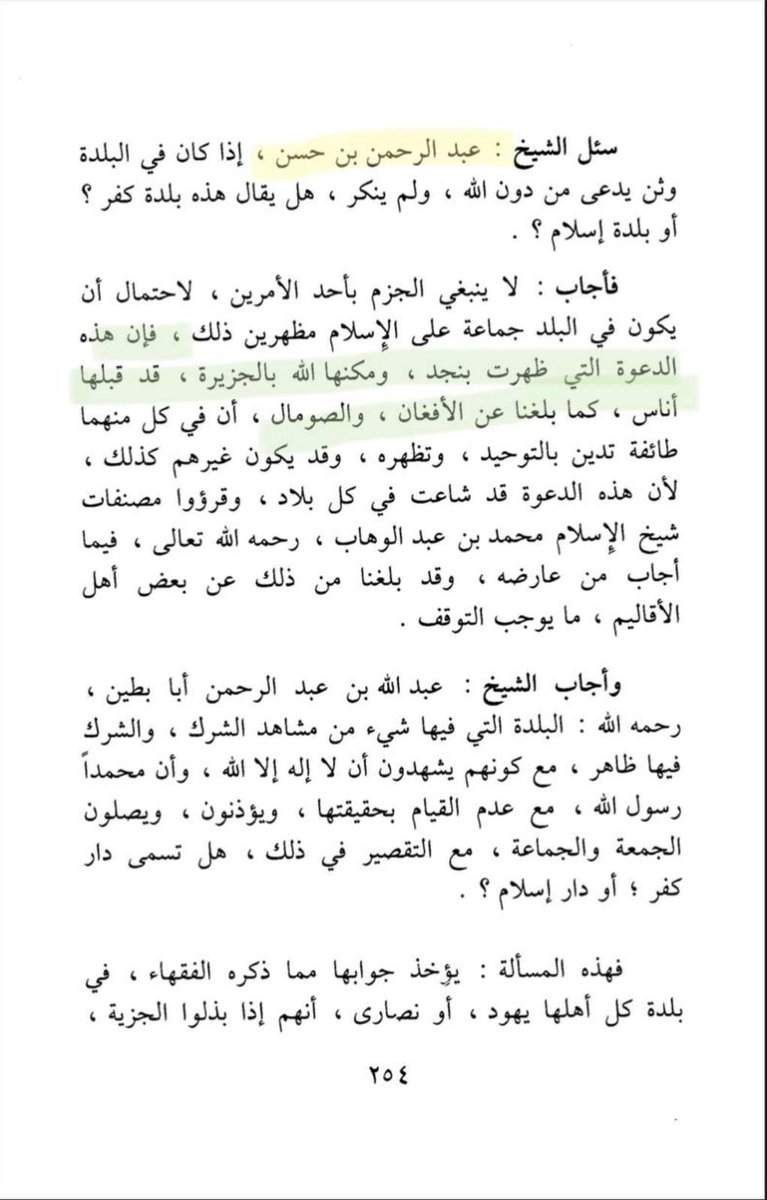

 • Ibn Baṭṭah al-ʿUkburī said:
• Ibn Baṭṭah al-ʿUkburī said: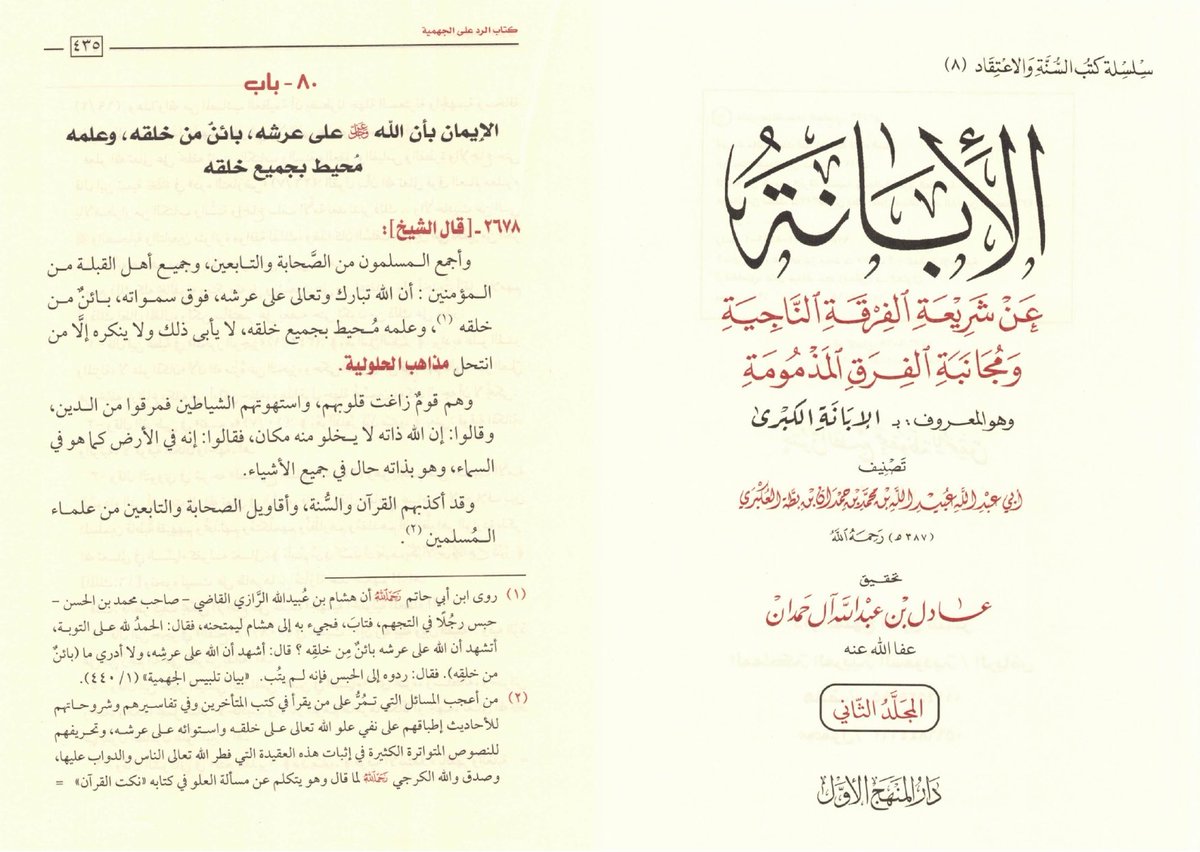
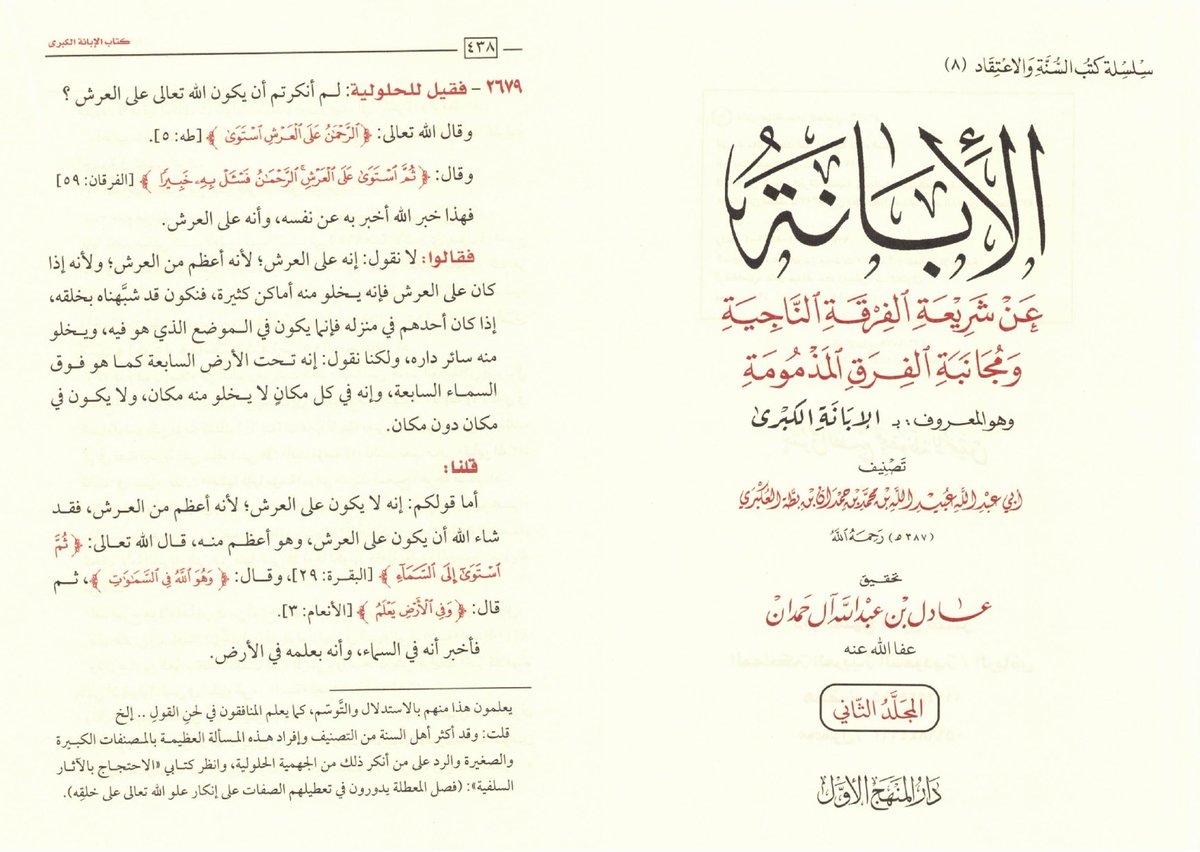
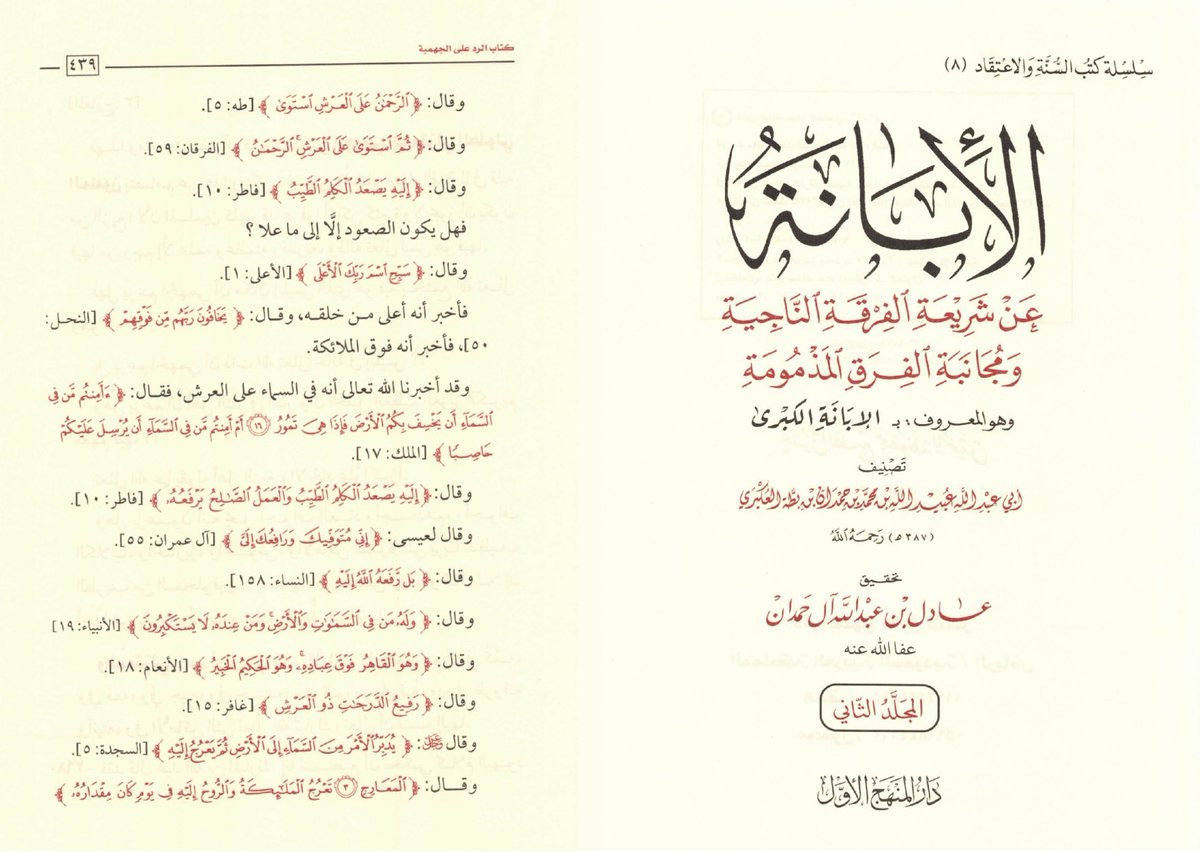
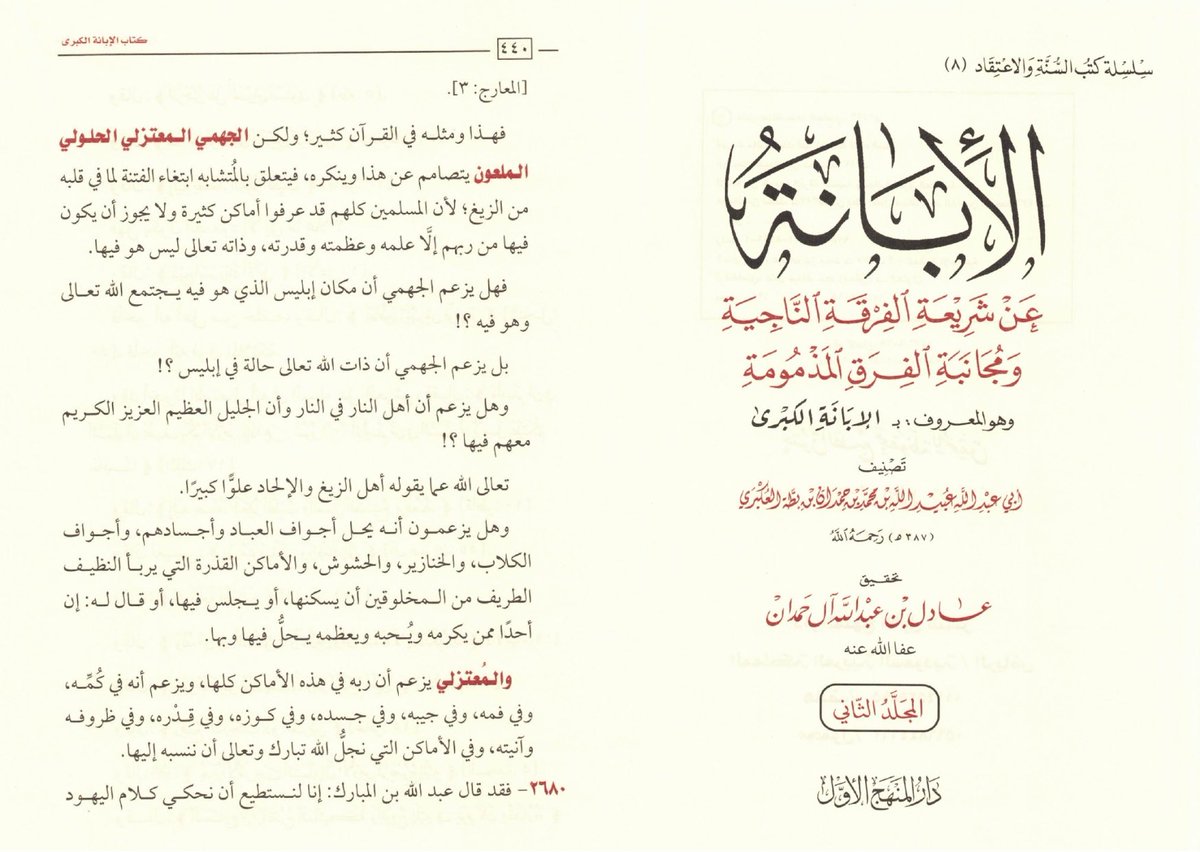

 𝗣𝗮𝗿𝘁 𝟭: 𝗔 𝗯𝗮𝗰𝗸𝗴𝗿𝗼𝘂𝗻𝗱 𝘁𝗼 𝗗𝗮𝗻𝗶𝗲𝗹’𝘀 𝗯𝗲𝗵𝗮𝘃𝗶𝗼𝘂𝗿
𝗣𝗮𝗿𝘁 𝟭: 𝗔 𝗯𝗮𝗰𝗸𝗴𝗿𝗼𝘂𝗻𝗱 𝘁𝗼 𝗗𝗮𝗻𝗶𝗲𝗹’𝘀 𝗯𝗲𝗵𝗮𝘃𝗶𝗼𝘂𝗿
 𝟭) 𝗦𝗵𝗮𝘆𝗸𝗵 𝗠𝘂𝗾𝗯𝗶𝗹 𝘀𝗮𝘆𝘀 𝘁𝗵𝗲 𝗿𝘂𝗹𝗲𝗿𝘀 𝗼𝗳 𝘁𝗵𝗲 𝗠𝘂𝘀𝗹𝗶𝗺𝘀 𝗮𝗿𝗲 𝗹𝗮𝗰𝗸𝗲𝘆𝘀 𝗼𝗳 𝗔𝗺𝗲𝗿𝗶𝗰𝗮 𝗮𝗻𝗱 𝗥𝘂𝘀𝘀𝗶𝗮 𝗮𝗻𝗱 𝗱𝗼𝗻’𝘁 𝗰𝗮𝗿𝗲 𝗮𝗯𝗼𝘂𝘁 𝘁𝗵𝗲 𝗠𝘂𝘀𝗹𝗶𝗺𝘀
𝟭) 𝗦𝗵𝗮𝘆𝗸𝗵 𝗠𝘂𝗾𝗯𝗶𝗹 𝘀𝗮𝘆𝘀 𝘁𝗵𝗲 𝗿𝘂𝗹𝗲𝗿𝘀 𝗼𝗳 𝘁𝗵𝗲 𝗠𝘂𝘀𝗹𝗶𝗺𝘀 𝗮𝗿𝗲 𝗹𝗮𝗰𝗸𝗲𝘆𝘀 𝗼𝗳 𝗔𝗺𝗲𝗿𝗶𝗰𝗮 𝗮𝗻𝗱 𝗥𝘂𝘀𝘀𝗶𝗮 𝗮𝗻𝗱 𝗱𝗼𝗻’𝘁 𝗰𝗮𝗿𝗲 𝗮𝗯𝗼𝘂𝘁 𝘁𝗵𝗲 𝗠𝘂𝘀𝗹𝗶𝗺𝘀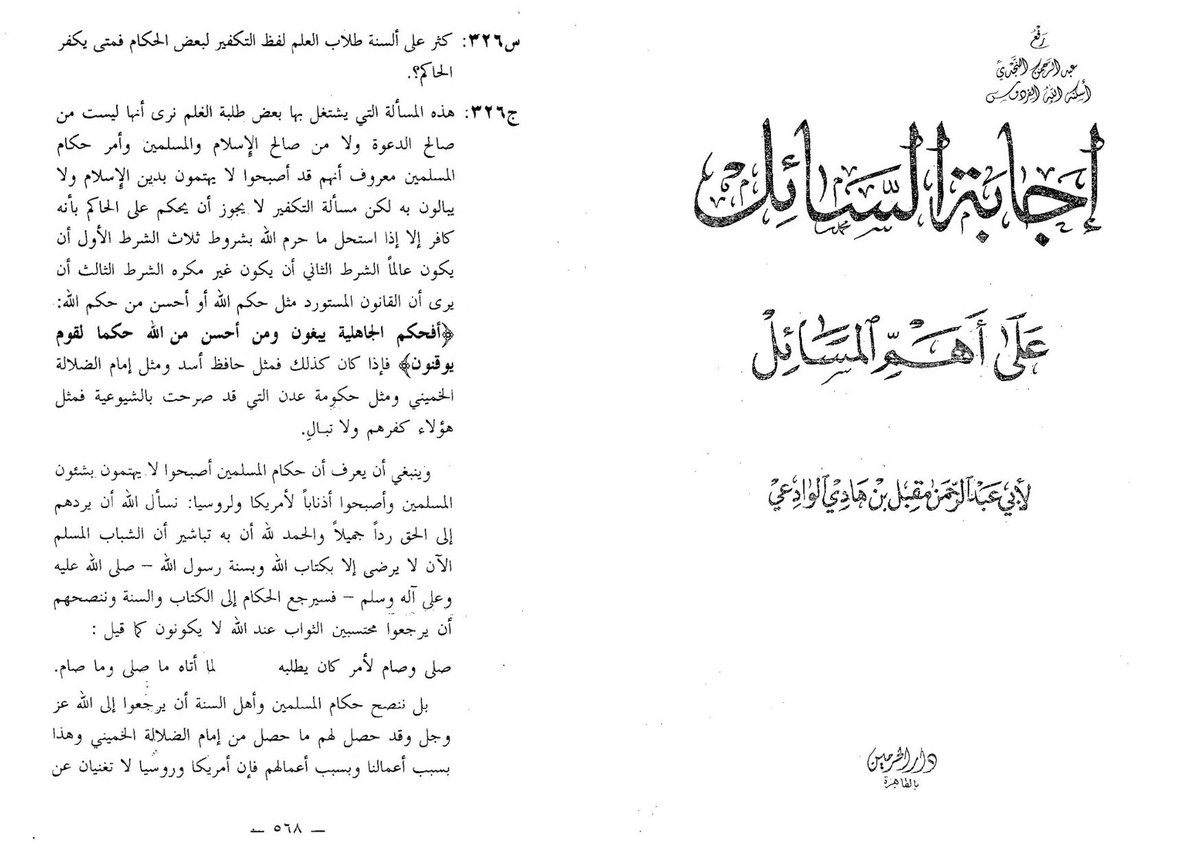
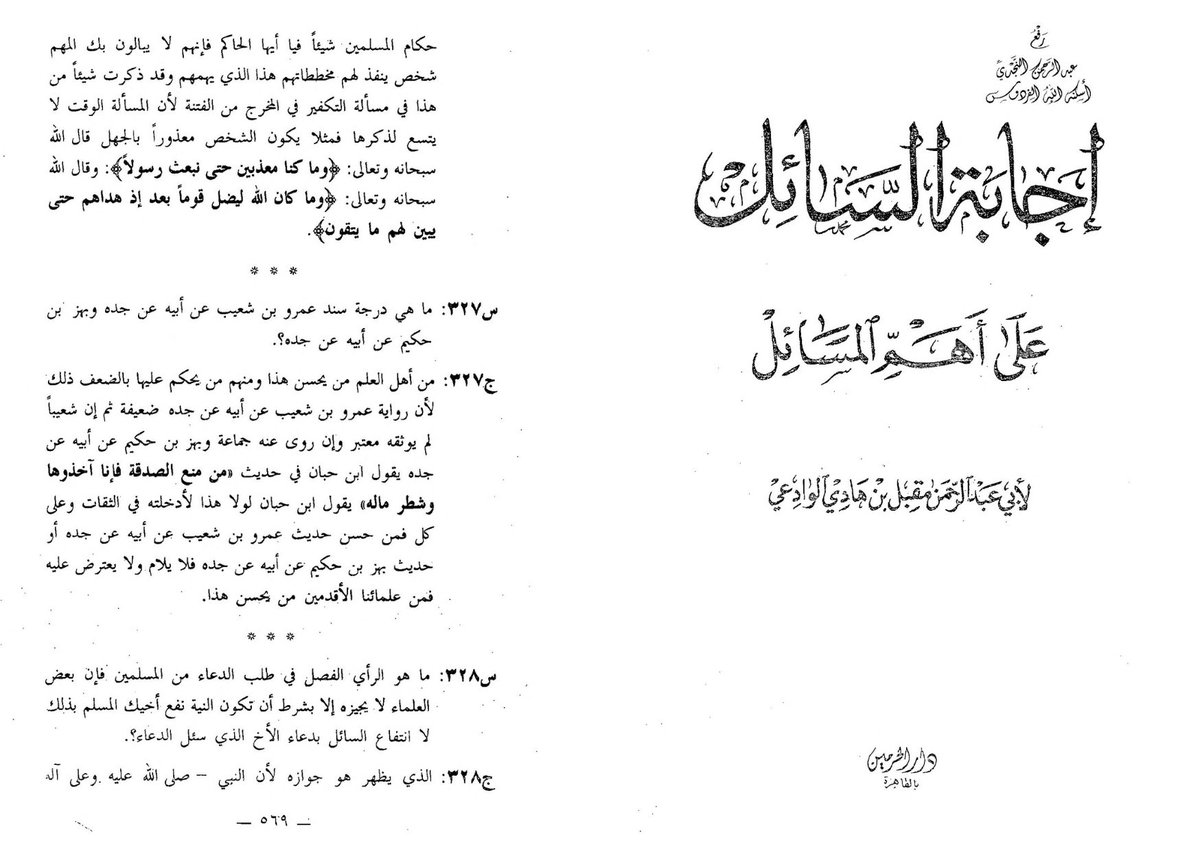



 𝟭) 𝗧𝗵𝗲 𝗿𝗲𝗽𝗼𝗿𝘁 𝗶𝗻 𝗾𝘂𝗲𝘀𝘁𝗶𝗼𝗻
𝟭) 𝗧𝗵𝗲 𝗿𝗲𝗽𝗼𝗿𝘁 𝗶𝗻 𝗾𝘂𝗲𝘀𝘁𝗶𝗼𝗻

 𝟭) 𝗘𝘂𝗿𝗼𝗽𝗲𝗮𝗻 𝗲𝘅𝗽𝗹𝗼𝗿𝗲𝗿𝘀
𝟭) 𝗘𝘂𝗿𝗼𝗽𝗲𝗮𝗻 𝗲𝘅𝗽𝗹𝗼𝗿𝗲𝗿𝘀

 • Ibn Nāṣir al-Dīn al-Dimashqī said about Ibn Kathīr:
• Ibn Nāṣir al-Dīn al-Dimashqī said about Ibn Kathīr:
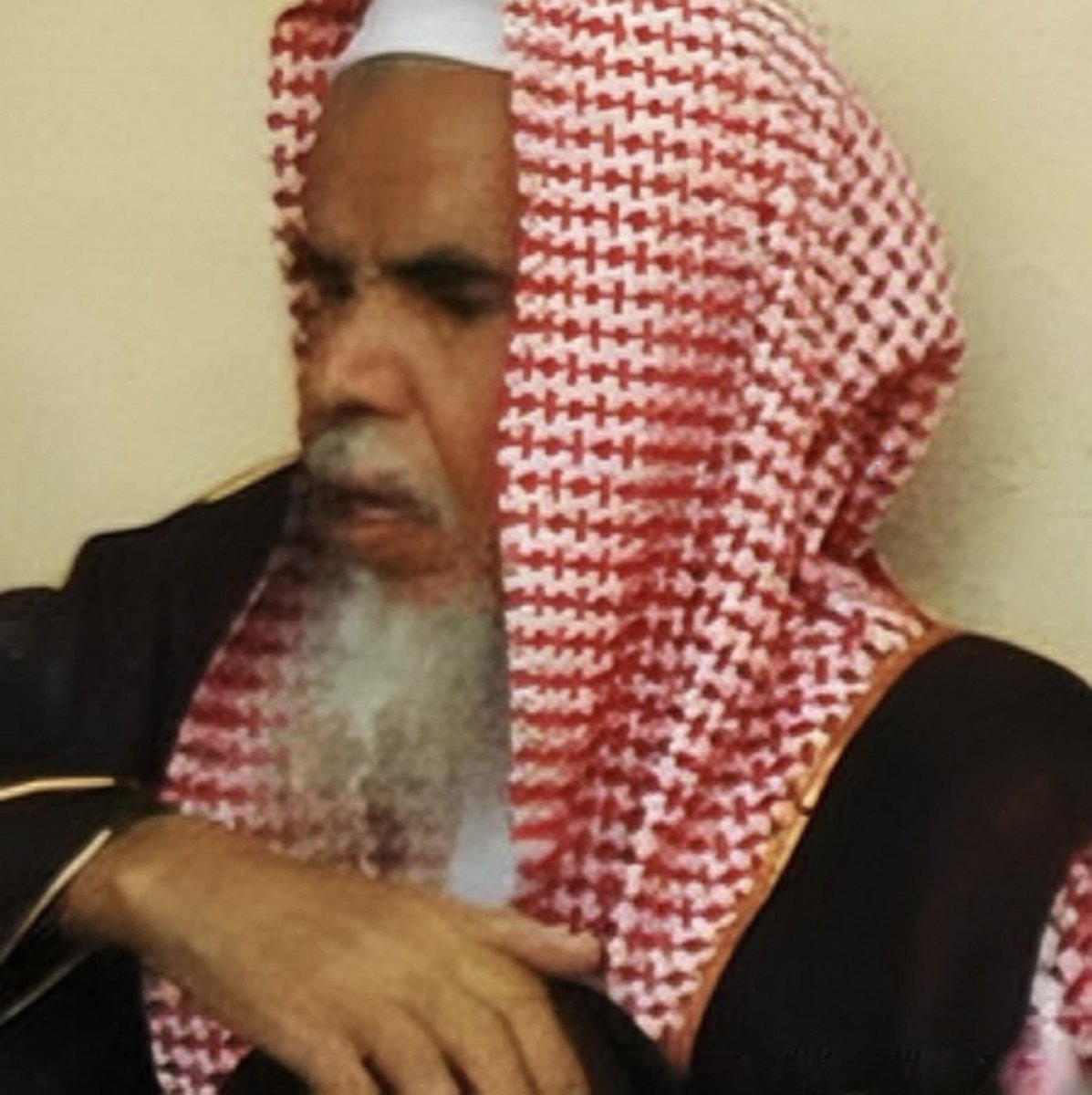
 𝟭) 𝗪𝗵𝗮𝘁 𝗶𝘀 𝘁𝗵𝗲 𝗱𝗼𝗰𝘁𝗿𝗶𝗻𝗮𝗹 𝗱𝘂𝘁𝘆 𝗼𝗳 𝗠𝘂𝘀𝗹𝗶𝗺𝘀 𝘁𝗼𝘄𝗮𝗿𝗱 𝘁𝗵𝗲 𝗝𝗲𝘄𝘀 𝗮𝗻𝗱 𝘁𝗵𝗲𝗶𝗿 𝘀𝘁𝗮𝘁𝗲?
𝟭) 𝗪𝗵𝗮𝘁 𝗶𝘀 𝘁𝗵𝗲 𝗱𝗼𝗰𝘁𝗿𝗶𝗻𝗮𝗹 𝗱𝘂𝘁𝘆 𝗼𝗳 𝗠𝘂𝘀𝗹𝗶𝗺𝘀 𝘁𝗼𝘄𝗮𝗿𝗱 𝘁𝗵𝗲 𝗝𝗲𝘄𝘀 𝗮𝗻𝗱 𝘁𝗵𝗲𝗶𝗿 𝘀𝘁𝗮𝘁𝗲?

 • Shaykh Muṣṭafā Ibn ʿAbd al-Qādir al-Hūsāwī said:
• Shaykh Muṣṭafā Ibn ʿAbd al-Qādir al-Hūsāwī said: